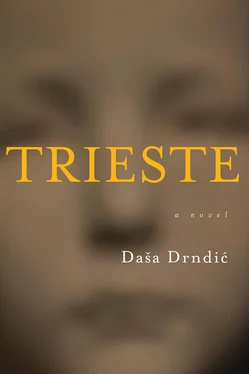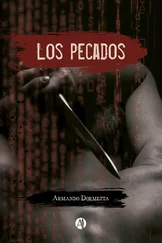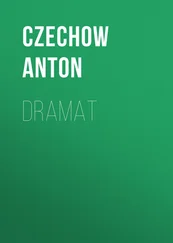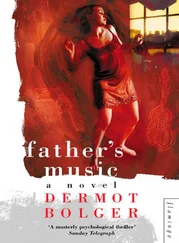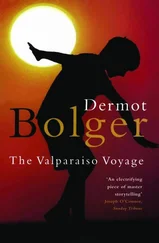syçkë pëllumb
lamtumirë
im verdhë ëndërr
të dua
të dashuroj
Ada’s breath smells of cheap perfume. The bus is full of women, children, farm animals. They rumble through the Albanian wilderness and remote mountains. The roads are ghastly. It takes them a week to reach Tirana. Florian locks up his desk as if he will soon be back to his bills, extracts, copies, calculations, interest rates, but he will not. He jumps into a car in Valona, sits next to an Italian general, who is also on the run, and before his family arrive he reaches the Dajti Hotel, only recently opened, orders sausages, un rocchio di salsiccia , a mixed salad of all sorts of vegetables, and blackberry and vanilla ice cream: Genuine Italian, nothing finer, winks the waiter. At dusk he strolls along Viale Savoia, A beautiful avenue, he says, and is breathless at the sight of the elegant villas nestled in Mediterranean vegetation. A new old chapter is being written, one of political intrigue, murders on demand, secret services, of people disappeared, families disappeared, stories never to be untangled, whose rotten threads like ratty street brooms poke along the ground and do nothing but smear the shit. Enver Hoxha is photographed more often, his two gold teeth flashing. Ada and the children abruptly forget their pidgin Albanian, and all they repeat is faleminderit shumë, faleminderit shumë, after which they fall suddenly silent. The Tedeschi family spend several nights on straw mattresses in the foyer of the Dajti Hotel, while around their heads stomp polished Italian boots. Later, in 1944, in chorus with Ada and Florian, Haya will tell their relatives in Gorizia, Those were terrible times for us Italians there .
It is already 1943. How time flies. In early September, when Italy is no longer any factor in Albania, when the director of the Banca di Napoli informs Florian, while they are still in Valona, that he is absolutely free to travel immediately to wherever he would like to go, the Tedeschi family secretly accept the help of a small Jewish anti-fascist group, which finds them accommodation near the airport, where, since the war is raging, planes keep landing and taking off and bombs drop like falling stars. Ah, our happy days are forever gone , hums Ada, swinging her hips and taking a long swig from a flask of brandy. Terrible , Ada says to her sister Letizia and brother Carlo after they return to Gorizia in late 1943.
There is not enough food or bread to go around. They use coupons to purchase coffee and sugar. The Albanians are speaking less Italian and more Albanian; some are even speaking German. These are a wild people, Ada and Florian say after they return to Gorizia, but a brave people, yes, indeed . The German troops attack. German bombs destroy. The Nazis count, catalogue, purify the population, filter it. Every day there are people hanging on the squares, swaying to the rhythm of the palm fronds. Ada believes all this to be a brief and cruel diversion, the work of unruly young men, so one day, after she has had a good swig from the flask that she now hides in the linen cupboard, under the bedding, she goes off to the German Military Command with Haya, convinced she can help free Florian’s colleague Sandro Koffler, the banker. Listen, Ada says, Sandro is an honest man. I am telling you. My last name is Tedeschi . The S.S. officer only glances up at Hitler hanging there on the wall, and waits. Tedesco in Italian means German, Ada says, I am someone you can trust .
Ja, Tedeschi , the officer says, ein jüdischer Name .
On their way home, Ada says to Haya, Let’s get some ice cream, while there still is ice cream to be had, while it is still Italian . And she also says, You can’t run from your name. Behind every name there is a story .
The Italian troops in Albania are now entirely out of favour. Former friends who are called Allies in wartime are arresting and killing soldiers. Some soldiers surrender, others flee, many die. The Tedeschi family move again, this time to the centre of Tirana, and prepare for departure, which is called repatriation. It is September 1943. Life dribbles by. Paula and Orestes go off to the abandoned palace of the fascist ministry in their neighbourhood, where they roller skate on the spacious marble floors, shrieking. For Paula and Orestes life is a thrill. The Nazis are stepping up their raids and searching flats. From a window on the third floor Haya watches a scene, as if from a movie. Later she faints. A young man in a yellow shirt with a hole on the right shoulder sprints towards her building, while across the street a Nazi lounging in an open-topped car lines him up in his sights. The barrage of bullets from the machine gun catches the young man two metres short of the front door. In an instant the yellow shirt grins red.
In un momento
Sono sfiorite le rose
I petali caduti
Perché io non potevo dimenticare le rose
Le cercavamo insieme
Abbiamo trovato delle rose
Erano le sue rose erano le mie rose
Questo viaggio chiamavamo amore
Col nostro sangue e colle nostre lagrime facevamo le rose
Che brillavano un momento al sole del mattino
Le abbiamo sfiorite sotto il sole tra i rovi
Le rose che non erano le nostre rose
Le mie rose le sue rose
P.S. E cosí dimenticammo le rose, *
whispers Ludoviko from Valona, while he watches Haya search for a lost earring in the sand by the sea, imagining himself to be Dino Campana and her to be Sibilla Aleramo, with their last dusk running out; and Haya (at the time), the goose, has no idea what he is mumbling.
The boy vanishes into Haya’s entranceway; she thinks she can touch him. The Nazis go from door to door, banging and shouting. As if the boy has been swallowed whole. The next day Haya ventures out to buy cornbread mixed with chaff, and on the square she sees more than a hundred neatly stacked bodies, some in civilian clothing, some in partisan uniforms. The passers-by do not look; they move quickly past with rubber tread. The men lie there as if sleeping, as if tired of war, as if they were tree trunks for a building project. There is no smell. There are no flies. The shops are open, banners snapping, the shutters on the windows are shut.
Ludoviko is not among those who were killed.
Koffler the banker is not released from prison. They take his wife Angela to the madhouse, because she yanks her hair out and bangs her head on the windowpane. For practically nothing, the Tedeschi family sell what little property they have acquired. Florian’s colleagues sail out of Valona, but do not reach Naples: the ship is bombed by British aircraft and sinks. The only survivor is a clerk named Leone Romanelli, who swims for three days to reach the shore, then arrives in Tirana to tell Florian all about it. He, too, loses his mind. His wife and three children are back there, on board, or rather in the sea, on the bottom of the sea. It is not wise to have many children. Then Leone Romanelli is placed in a madhouse. To keep Angela Koffler company. For ever, Haya believes.
Escorted by German soldiers, the Tedeschi family leave Albania and travel for three weeks to Italy. Behind them they leave their physical stench and dead armies, whose generals, Italian and German, lugging maps, registers, medical and army records, dental records and data on medical histories, dragging along with them a priest or two, wandering through the remote mountains and sandy coves of the land of eagles, come back twenty years later, through the mud and rain, the summer heat, regardless, looking for mouldering bones over which crops or skyscrapers have grown.
Читать дальше
